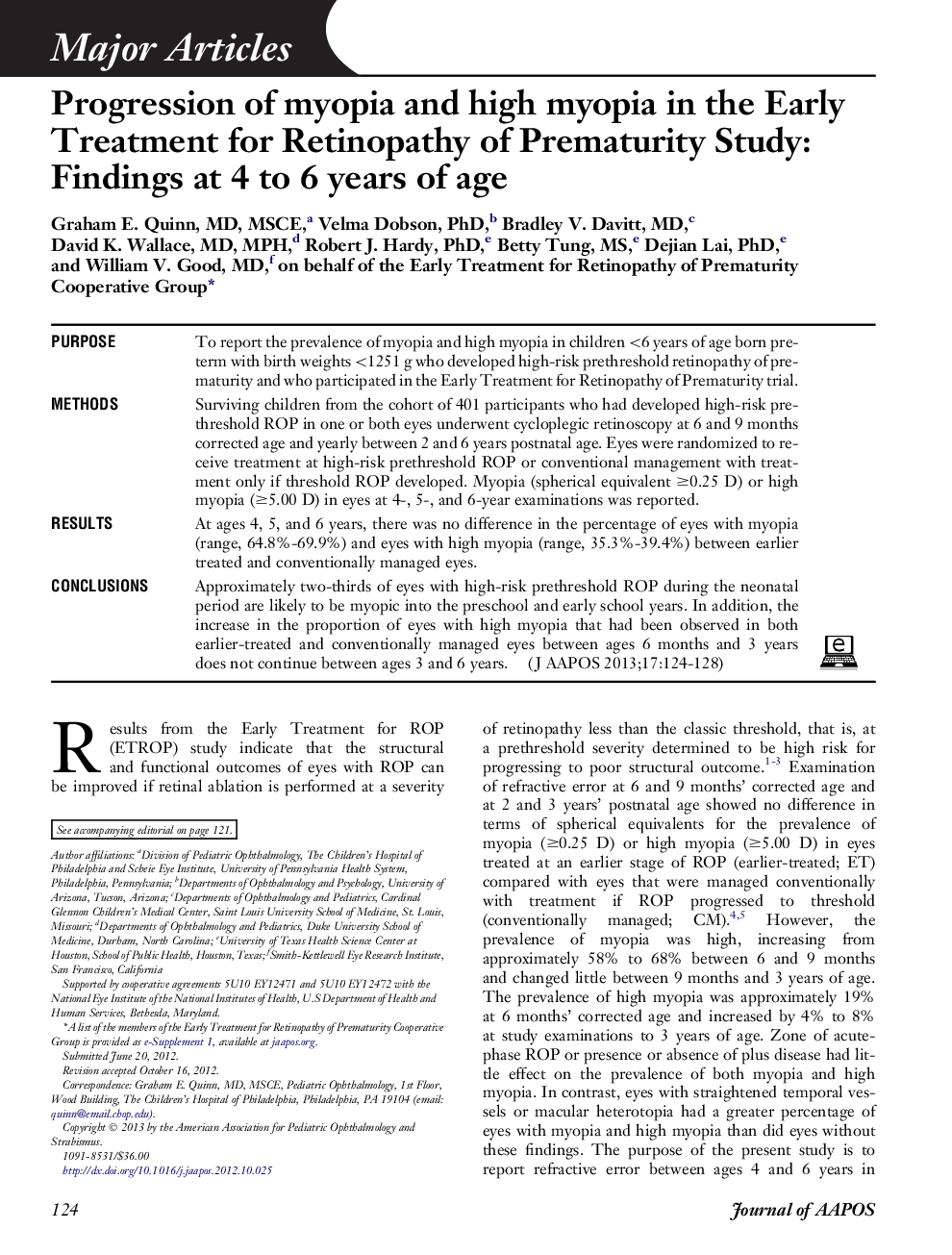| Article ID | Journal | Published Year | Pages | File Type |
|---|---|---|---|---|
| 4013780 | Journal of American Association for Pediatric Ophthalmology and Strabismus | 2013 | 5 Pages |
PurposeTo report the prevalence of myopia and high myopia in children <6 years of age born preterm with birth weights <1251 g who developed high-risk prethreshold retinopathy of prematurity and who participated in the Early Treatment for Retinopathy of Prematurity trial.MethodsSurviving children from the cohort of 401 participants who had developed high-risk prethreshold ROP in one or both eyes underwent cycloplegic retinoscopy at 6 and 9 months corrected age and yearly between 2 and 6 years postnatal age. Eyes were randomized to receive treatment at high-risk prethreshold ROP or conventional management with treatment only if threshold ROP developed. Myopia (spherical equivalent ≥0.25 D) or high myopia (≥5.00 D) in eyes at 4-, 5-, and 6-year examinations was reported.ResultsAt ages 4, 5, and 6 years, there was no difference in the percentage of eyes with myopia (range, 64.8%-69.9%) and eyes with high myopia (range, 35.3%-39.4%) between earlier treated and conventionally managed eyes.ConclusionsApproximately two-thirds of eyes with high-risk prethreshold ROP during the neonatal period are likely to be myopic into the preschool and early school years. In addition, the increase in the proportion of eyes with high myopia that had been observed in both earlier-treated and conventionally managed eyes between ages 6 months and 3 years does not continue between ages 3 and 6 years.
